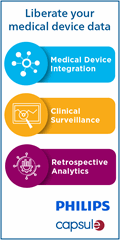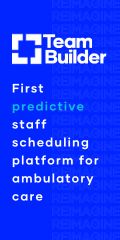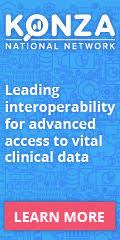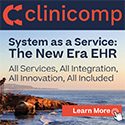Advisory Panel: How Will the ICD-10 Delay Affect Your Organization?
The HIStalk Advisory Panel is a group of hospital CIOs, hospital CMIOs, practicing physicians, and a few vendor executives who have volunteered to provide their thoughts on topical industry issues. I’ll seek their input every month or so on an important news developments and also ask the non-vendor members about their recent experience with vendors. E-mail me to suggest an issue for their consideration.
If you work for a hospital or practice, you are welcome to join the panel. I am grateful to the HIStalk Advisory Panel members for their help in making HIStalk better.
This question this time: How will the ICD-10 delay impact your organization?
The ICD-10 delay will cost us more for the implementation. It could be up to $1 million in implementation resources. Our project team will extend for another year, upgrades will stay on track, and we will dual code for longer than planned. We have hired coders who only know ICD-10 and we have to retrain them for ICD-9 so that they can be productive. Unless our vendors come out with yet another ICD-10 version, we should be finished with upgrades by this summer and have a year or longer to test.
[from a vendor member] The delay won’t impact our organization at all We were ready a while back and so honestly the bad part of this is that all our hard work as compared to other vendors will somewhat go unrecognized. That said, it’s really not that bad since it just means our solution will be even better given the year delay. Our clients who were already on the track for ICD-10 readiness are all staying focused on ICD-10 preparations regardless of the delay.
Overall I am neutral on the delay. We have done a great deal of preparation, but most of that is helpful with ICD-9 or 10. It would have been a much bigger relief and benefit if MU Stage 2 were delayed. We had already begun an aggressive Clinical Document Improvement (CDI) program aligned with our ICD-10 project. We will continue that program and will also complete our Computed Assisted Coding (CAC) project as it is well underway and has the added impact of allowing us to outsource much of our coding function. Most of the software upgrades came with the MU S2 changes so that testing was needed. The places we will cut back on is training, testing, and outsourced project manager costs. The CDI related training will continue and coder training will be slowed. All other ancillary training and provider ICD-10 specific training will be put on hold. Testing with payers will be delayed for as long as it takes. Unfortunately, this does not really make any resources available to do all the other projects on the list!
This hospital was in the midst of individual system testing and had worked with a few payers to do some combined testing when the delay was announced. Most systems had been upgraded and others were close. We had implemented computer-assisted coding in 2013 to ease the transition into dual coding and had that project live. We had purchased ICD-10 training content, had our coders trained, and had started scheduling provider training. I’d like to say the ICD-10 delay was good because of everything else we have going on in IS (MU Stage 2, an anesthesia go-live, new clinics opening, etc.) as well as all of the other pressures placed on our providers. The reality is that this organization is going to absorb even more expenses than planned due to the delay. The opportunity costs alone concern me. We could have done more productive things this past year that could have had positive impact to our bottom line or patient care. We will have some repeat work to be done in testing and training for the next run at things (unless it’s delayed again – ICD-11 anyone?) I’d like to see us push through and get the rest of the systems upgraded and get our providers trained. The rest of the organization wants to put everything off until we have to do it.
The good news is that we have more time to modify application systems that fell behind schedule for ICD-10 updates. We will be adding more acceptance testing of system changes, especially for our physicians. On the coding side, we will expand our dual coding efforts to identify where improved clinical documentation is needed. Physician training will be delayed. The longer the work spans the higher the cost. So far we’ve estimated an impact of $500,000 to $1 million extra expense due to our need to extend resources.
We are one of the few sites that are rejoicing over the delay. We were woefully late (I have not been here long) and were trying to do too much before the deadline. We will maximize the delay to our benefit.
We were all ready, but stopped cold and now have some smart team members who can do other things. It also meant the government has lost all credibility in this area and we will not try and be too ahead of the curve next time.
The ICD-10 delay shouldn’t impact us terribly, so I don’t see it as good or bad. Our primary systems have been set up for dual coding for several months now. The majority of our coders are through a vendor, so our primary target is the physician population. The focus with the physicians to date has been better documentation rather than ICD-10 so we will continue this strategy. We are also implementing computer-assisted coding with a live date of June so that will continue as well.
Time was tight for us but we were on track to be ready by 10/1. Although we had begun training, it was organizational / high level therefore we don’t see the time wasted. We are going to use the time to focus on more of the plumbing prior to launching additional training before the next requirement date kicks in. Overall we see the delay as good organizationally.
It is good for us. Generally speaking, it is hard to see how the good of ICD-10 outweighs the bad. With everything else going on in healthcare and healthcare IT, having another year to prepare is a good thing. I have been somewhat surprised to see our professional organizations (CHIME, HIMSS, AHIMA) come out so strongly in favor of keeping it in 2014 when almost half of the provider organizations feel positive about the delay.
We would have been ready for ICD-10 this fall. While the delay does give more time to test, etc. we see it as a negative. We will continue with our testing (integration underway) and will move forward with the majority of our plans this year regardless of the delay. Main impact is around the timing of training – this will be delayed and we have to now reassess our plans to keep ICD-10 “fresh” for those coders that were in process. Also, it causes us to have to extend our resource commitments – whether internal or consulting – which will cause additional expense. We also now have to reassess several large go-lives whose schedules were made based on ICD-10 happening this year.
We have already implemented tools to support ICD-10 in our EHR and will use the delay time to get our users used to more specific documentation to support ICD-10. Will shift our planned education push to meet new schedule.
As an organization, we are not happy with the delay. We believed we were well positioned for October 1, but we were unsure how our payers, especially CMS, would be ready. The delay will cause us to slow down our physician education, but we are continuing our work on infrastructure like reports and having them ready to go. Concerned they may decide to skip ICD-10 and go to ICD-11 and have another delay.
It gives us time to complete the required upgrades without the intense pressure and also focus on a clinical replacement. Being a McKesson Horizon customer, we have to select a new system.
[from a vendor member] The delay is unfortunate and bums me out. If folks weren’t ready, we need vendors who step up to take care of the transitions, not more delays. We were ready and spent a tremendous amount of effort to get ready so the biggest negative impact to us is all the things we could have done instead. What could we have done for caregivers instead of using our resources on ICD-10? High opportunity cost.
Kill me now. This is the most ridiculous thing I have ever encountered in my health IT career. We make plans for big projects at least a year ahead of time. Much of our project planning for converting hospitals to Epic was designed around avoiding the immediate post ICD-10 period. Since CMS has been silent—are we to assume the next date is October 1, 2015? We need to make plans and are in a holding period once again. Does anyone have any credibility on this topic?
We’re not stopping, but we are slowing down. We’re in the middle of a bunch of other projects (MU, physician documentation, revenue cycle revisions, massive system upgrades to non-clinical systems, etc.) that need attention. Most of our vendors will have compliant systems long before the deadline, so that all we really will have to do is flip switches. I consider this a neutral to positive. We’ve got limited staff resources to address everything and this gives us one space where we have a little breathing room.
The ICD-10 delay gives us a chance to spend more time implementing and more thoroughly testing our solutions end to end. I for one was thankful for the delay as we just had too much going on at one time. The only question I have is whether or not the Feds will start leaning toward ICD-11 instead.





















































































It is interesting that a number of my providers as well as the hospital system ask if I have advance…